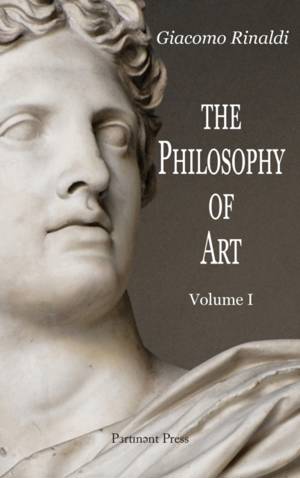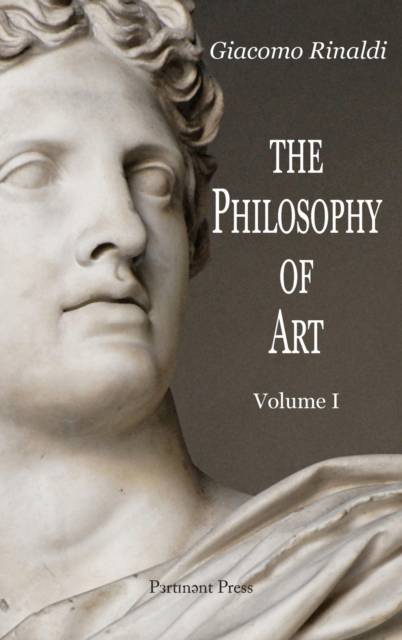
- Retrait gratuit dans votre magasin Club
- 7.000.000 titres dans notre catalogue
- Payer en toute sécurité
- Toujours un magasin près de chez vous
- Retrait gratuit dans votre magasin Club
- 7.000.0000 titres dans notre catalogue
- Payer en toute sécurité
- Toujours un magasin près de chez vous
Description
This book offers its readers a theoretical-systematic statement of the problematic of aesthetics in the aftermath of Hegel's Lectures on Aesthetics and of its further developments in the works of his greatest, or most influential, followers, in particular Friedrich Theodor Vischer's monumental Ästhetik oder Wissenschaft des Schönen (1846-57).
On the basis of an in-depth interpretation and critical evaluation of the Hegelian conception of art as the immediate, abstractly objective form of Absolute Spirit, its Author goes on to analyse, discuss and in many cases criticise a wide range of theoretical conceptions of the Beautiful and of art, starting with Greek aesthetics and then mainly focusing on the philosophy of German, Italian and British Idealism as well as on its one-sided, unconvincing rejection by Adorno's materialistic-sociological approach to classical, Romantic and contemporary art, by Nicolai Hartmann's realistic metaphysics and by Heidegger's existential ontology. As far as Greek aesthetics is concerned, special attention is paid to Plato's denial of art's truth and necessity, to Aristotle's theory of tragedy and to Pseudo-Longinus' doctrine of the Sublime. The treatment of German Idealism deals with, besides Hegel's aesthetics, the conception of the Beautiful as perfectio put forward by the Leibniz school, with Kant's transcendental formalism, with Schiller's and Fichte's moral-pedagogical view of art and with Schelling's metaphysical explanation of its essence; that of Italian Idealism, with the historicist outlooks of Vico, Croce and Gentile; and that of British Idealism, with the aesthetics of Collingwood.
Owing to the very extensive range of its subject matter, the philosophical project lying at the root of The Philosophy of Art is articulated into two Volumes, the first of which, dealing with 'The Concept of Art', constitutes the present book, while the second, outlining 'The System of Art's Form and Kinds' and 'Art's World-historic Development', is currently in preparation. Despite the inner connection between the two Volumes, the first can be regarded and read as a self-sufficient work, because the outline of the concept of art set out in it de facto overlaps with most topics dealt with by traditional philosophical aesthetics.
These can be grouped into three classes, the first of which is discussed in Section I, 'Metaphysics of Art', the second in Section II, 'Phenomenology of Art', the third in Section III, 'Art in the System of Spirit's Absolute Forms'. The problems dealt with in Section I are those of the essence of art's content and of its relationship with its form, and of the difference and the connection between the Beautiful and the Ugly in the art work and between natural and artistic beauty. Section II copes with the problems of the essence of 'uninterested' or 'pure feeling' as the a priori-subjective form of art, of the relationship between the logical-metaphysical categories of Appearance and Reality in the art work, and of the connection, in 'art's spirit', between genius, taste and art criticism. Section III is devoted to the clarification of the place of art in reality and, by implication, in spirit's activity, since the former, in the last resort, turns out to be coincidental with the latter.
To such an end, a summary outline of the dynamical structure of spirit is set out, on the basis of which a solution is offered to the crucial problems of the relationship between art and morality and between its autonomy and heteronomy.
A brief sketch of the historical development of aesthetics concludes this Volume.
Spécifications
Parties prenantes
- Auteur(s) :
- Editeur:
Contenu
- Nombre de pages :
- 572
- Langue:
- Anglais
Caractéristiques
- EAN:
- 9781912142330
- Date de parution :
- 24-10-21
- Format:
- Livre relié
- Format numérique:
- Genaaid
- Dimensions :
- 156 mm x 234 mm
- Poids :
- 970 g

Les avis
Nous publions uniquement les avis qui respectent les conditions requises. Consultez nos conditions pour les avis.






